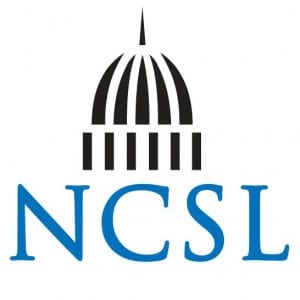
The National Conference of State Legislatures passed a resolution today demanding that federal laws “be amended to explicitly allow states to set their own marijuana and hemp policies.” This is a very significant thing, and is similar to what the U.S. Conference of Mayors passed in 2013. Two months after the U.S. Conference of Mayors passed their resolution the Department of Justice issued a memo stating that the Obama administration would mostly stay out of the way of state marijuana laws. How will the feds react to this latest condemnation of federal interference in states that have their own marijuana laws on the books? Only time will tell. Below is a reaction from Tom Angell of the Marijuana Majority, along with a reaction from the Marijuana Policy Project:
“While the Obama administration has made some helpful accommodations for states to move forward with their own marijuana policies, overarching federal prohibition laws still stand in the way of full and effective implementation. These state lawmakers are demanding that the federal government stop impeding their ability to set and carry out marijuana laws that work best for their own communities, and Congress should listen. Polls show that an overwhelming majority of Americans want the feds to get out of the way, and national politicians would do well to take note of what their constituents are saying.” – Tom Angell, Marijuana Majority
***
The National Conference of State Legislatures (NCSL) approved a resolution Thursday urging the federal government to allow states to determine their own marijuana policies. For a resolution to pass, it must be supported by a majority of participating legislators in each of 75% of the states represented at the conference’s general business meeting.
The preamble to the resolution, introduced by New Hampshire State Rep. Renny Cushing, notes that “states are increasingly serving as laboratories for democracy by adopting a variety of policies regarding marijuana and hemp,” and it highlights the fact that “the federal government cannot force a state to criminalize cultivating, possessing, or distributing marijuana or hemp — whether for medical, recreational, industrial, or other uses — because doing so would constitute unconstitutional commandeering.”
The resolution states:
NOW, THEREFORE, BE IT RESOLVED that the National Conference of State Legislatures believes that federal laws, including the Controlled Substances Act, should be amended to explicitly allow states to set their own marijuana and hemp policies without federal interference and urges the administration not to undermine state marijuana and hemp policies.
BE IT FURTHER RESOLVED that the National Conference of State Legislatures recognizes that its members have differing views on how to treat marijuana and hemp in their states and believes that states and localities should be able to set whatever marijuana and hemp policies work best to improve the public safety, health, and economic development of their communities.
The full resolution can be found online at https://www.ncsl.org/documents/standcomm/sclaw/Marijuana_Policies_Federal_Interference.pdf.
“State lawmakers just sent a message to Congress that could not be any clearer,” said Karen O’Keefe, director of state policies for the Marijuana Policy Project, which tracks marijuana policy in all 50 states and lobbies in state legislatures throughout the country. “It’s time to end the federal prohibition of marijuana and let the states decide what policies work best for them.
“A majority of Americans support making marijuana legal for adults and even more think states should be able to establish their own marijuana laws without federal intrusion,” O’Keefe said. “This resolution is a strong indication that legislators throughout the nation are not just hearing from but listening to their constituents when it comes to marijuana policy.”
Twenty-three states, the District of Columbia, and Guam have adopted laws that allow seriously ill patients to use medical marijuana if their doctors recommend it, and four states — Alaska, Colorado, Oregon, and Washington — have adopted laws that make marijuana legal for adults and regulate it similarly to alcohol. Marijuana possession, cultivation, and sales are illegal under federal law, but the Department of Justice has indicated that it will not allocate resources toward enforcing federal marijuana laws in cases involving individuals or businesses that are acting in compliance with state laws.
The Marijuana Policy Project, the nation’s largest marijuana policy organization, has been responsible for changing most state-level marijuana laws since 2000. For more information, visit https://www.MarijuanaPolicy.org.








